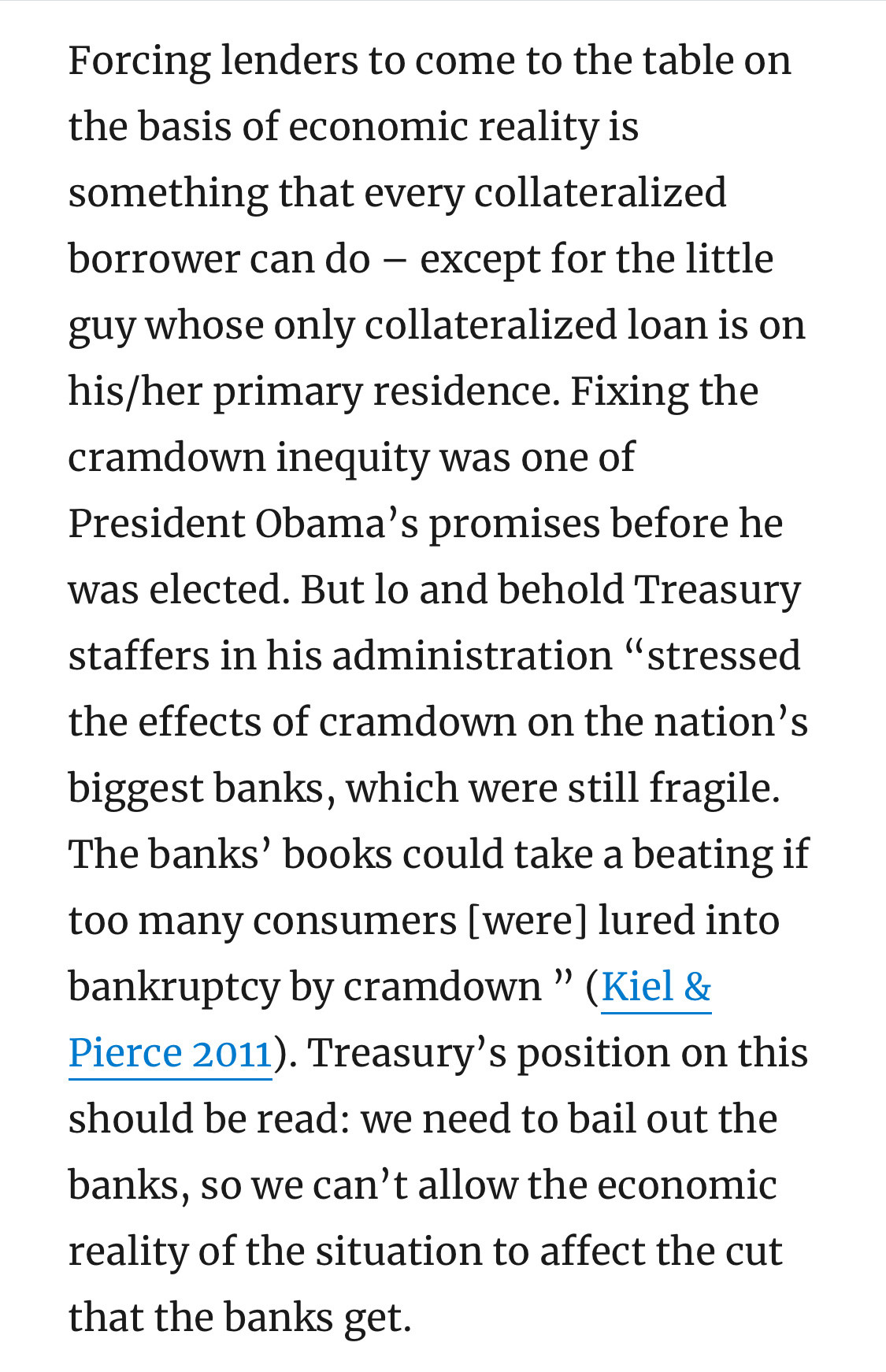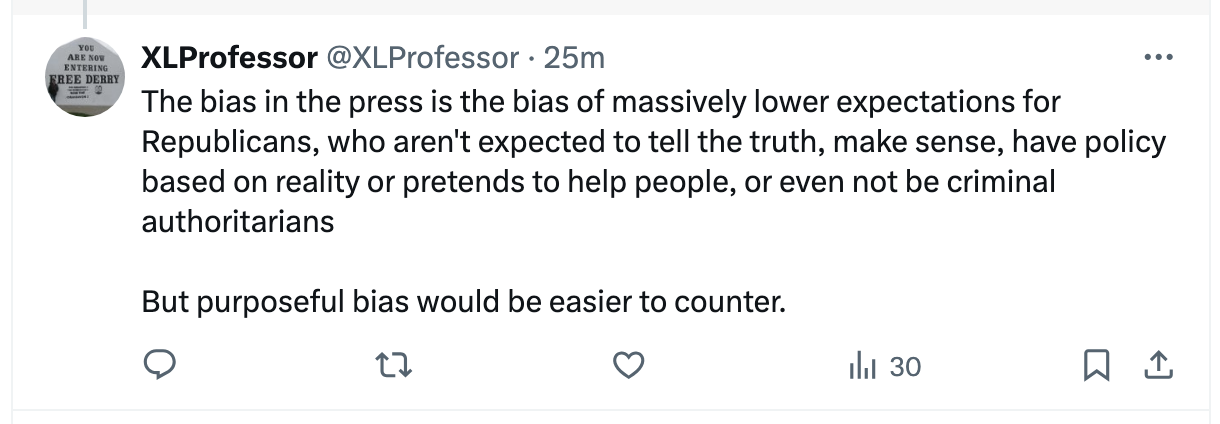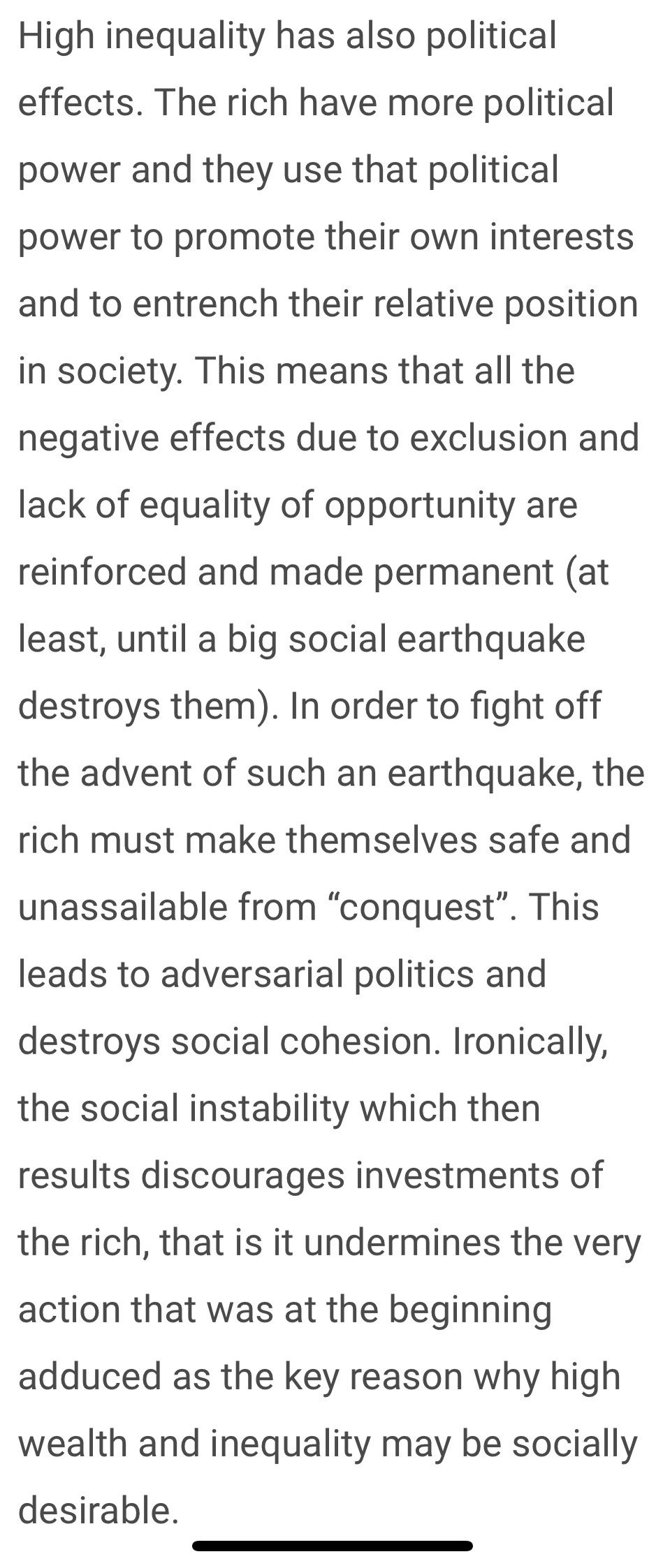 Text: Forcing lenders to come to the table on the basis of economic reality is something that every collateralized borrower can do - except for the little guy whose only collateralized loan is on his/her primary residence. Fixing the cramdown inequity was one of President Obama's promises before he was elected. But lo and behold Treasury staffers in his administration "stressed the effects of cramdown on the nation's biggest banks, which were still fragile. The banks' books could take a beating if too many consumers [were] lured into bankruptcy by cramdown " (Kiel & Pierce 2011). Treasury's position on this should be read: we need to bail out the banks, so we can't allow the economic reality of the situation to affect the cut that the banks get.
Text: Forcing lenders to come to the table on the basis of economic reality is something that every collateralized borrower can do - except for the little guy whose only collateralized loan is on his/her primary residence. Fixing the cramdown inequity was one of President Obama's promises before he was elected. But lo and behold Treasury staffers in his administration "stressed the effects of cramdown on the nation's biggest banks, which were still fragile. The banks' books could take a beating if too many consumers [were] lured into bankruptcy by cramdown " (Kiel & Pierce 2011). Treasury's position on this should be read: we need to bail out the banks, so we can't allow the economic reality of the situation to affect the cut that the banks get.
@smeg (this wasn’t my experience or issue, i’m just quoting Kevin Drum.)
@KarlHeinzHasliP (not me! i’m quoting Kevin Drum.)
“Oh great. It's no longer possible to download the Barnes & Noble Nook app, which means there's no way to install it on my new tablet. This in turn means that the ~100 books I have on Nook are now gone. Pffft. I will never be able to read them again.
Three cheers for the intersection of modern technology and crappy corporations.” #KevinDrum https://jabberwocking.com/no-more-nook/
“Generally speaking, firms with more market power can price gouge, so [price gouging] laws are sometimes known as ‘antitrust as last resort.’” @matthewstoller https://www.thebignewsletter.com/p/monopoly-round-up-price-gouging-vs
@marick @eyesquash they certainly seem capable of taking cues from Elon Musk’s X/Twitter.
“If you’re not not paying for the product, you’re the product, and if you are paying for the product, you’re still the product.” @pluralistic https://pluralistic.net/2024/08/17/hack-the-planet/#how-about-a-nice-game-of-chess
“the soft bigotry of low expectations”
#IsntItIronic
 Screenshot of tweet from @XLProfessor: The bias in the press is the bias of massively lower expectations for Republicans, who aren't expected to tell the truth, make sense, have policy based on reality or pretends to help people, or even not be criminal authoritarians But purposeful bias would be easier to counter.
Screenshot of tweet from @XLProfessor: The bias in the press is the bias of massively lower expectations for Republicans, who aren't expected to tell the truth, make sense, have policy based on reality or pretends to help people, or even not be criminal authoritarians But purposeful bias would be easier to counter.
 Text: High inequality has also political effects. The rich have more political power and they use that political power to promote their own interests and to entrench their relative position in society. This means that all the negative effects due to exclusion and lack of equality of opportunity are reinforced and made permanent (at least, until a big social earthquake destroys them). In order to fight off the advent of such an earthquake, the rich must make themselves safe and unassailable from "conquest". • This leads to adversarial politics and destroys social cohesion. Ironically, the social instability which then results discourages investments of the rich, that is it undermines the very action that was at the beginning adduced as the key reason why high wealth and inequality may be socially desirable.
Text: High inequality has also political effects. The rich have more political power and they use that political power to promote their own interests and to entrench their relative position in society. This means that all the negative effects due to exclusion and lack of equality of opportunity are reinforced and made permanent (at least, until a big social earthquake destroys them). In order to fight off the advent of such an earthquake, the rich must make themselves safe and unassailable from "conquest". • This leads to adversarial politics and destroys social cohesion. Ironically, the social instability which then results discourages investments of the rich, that is it undermines the very action that was at the beginning adduced as the key reason why high wealth and inequality may be socially desirable.
@djc I don’t think matching on tips was a great move, but all things considered her moves have been pretty good, so I’m not going to get too bent out of shape. Dems’ policy process is better than their political process about policy. If you followed Warren’s “windfall profits tax” on oil a while back, all your Econ 101 pundits (what a tiresome genre) got up in arms, but if you read the details, it was intelligently done, with careful attention to preserving supply incentives.
@djc there’s a lot in this first round of proposals that reflects good impulses but not-so-great details. from my perspective, it’s been a mistake to get as specific as she has (though the tip thing was just matching Trump). but i think it’s the impulses that have staying power, much more than details. Obama campaigned against Hillary’s individual mandate, the program he passed included it, that “flip flop” wasn’t a big deal.
“Look, I’m a prosecutor, and I’m going to prosecute the people who are ripping you off,” is not so bad a pitch!
@kentwillard I think the economic policy is something of a first draft, but there’s a commitment to a direction. What’s interesting about the beauty content is to whom she is trying to be beautiful.
@skinnylatte what a beautiful Picasso.
@eyesquash @pluralistic @marick @maxmmiller@mastodon.online he put a dent in the universe. it’s where the rust took hold.
 Text: Forcing lenders to come to the table on the basis of economic reality is something that every collateralized borrower can do - except for the little guy whose only collateralized loan is on his/her primary residence. Fixing the cramdown inequity was one of President Obama's promises before he was elected. But lo and behold Treasury staffers in his administration "stressed the effects of cramdown on the nation's biggest banks, which were still fragile. The banks' books could take a beating if too many consumers [were] lured into bankruptcy by cramdown " (Kiel & Pierce 2011). Treasury's position on this should be read: we need to bail out the banks, so we can't allow the economic reality of the situation to affect the cut that the banks get.
Text: Forcing lenders to come to the table on the basis of economic reality is something that every collateralized borrower can do - except for the little guy whose only collateralized loan is on his/her primary residence. Fixing the cramdown inequity was one of President Obama's promises before he was elected. But lo and behold Treasury staffers in his administration "stressed the effects of cramdown on the nation's biggest banks, which were still fragile. The banks' books could take a beating if too many consumers [were] lured into bankruptcy by cramdown " (Kiel & Pierce 2011). Treasury's position on this should be read: we need to bail out the banks, so we can't allow the economic reality of the situation to affect the cut that the banks get.

